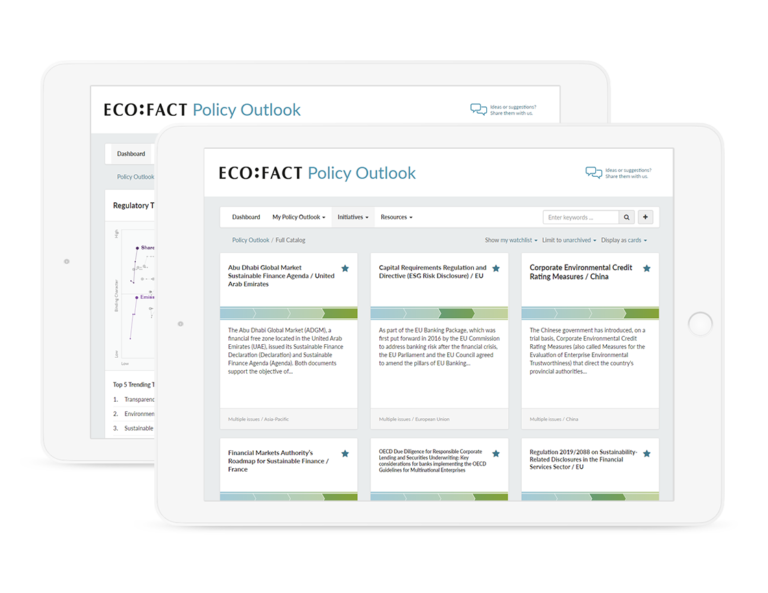Guest Contribution – Changing Expectations With Regard to Disclosures on ESG Issues
Stakeholder expectations are changing with regard to disclosures on environmental, social, and governance (“ESG”) issues by large financial institutions, especially with regard to the risks associated with climate change. Financial institutions are likely to face increased levels of scrutiny with regard to their voluntary and mandatory reporting efforts in the coming years.
Recent developments that reflect fundamental shifts in expectations include:
- In September 2017, more than 100 institutional investors sent a letter to the heads of 62 large financial institutions calling for increased disclosures on: climate-related risk assessment and management; climate-specific strategies and associated implementation efforts; low-carbon banking products and services; and public policy engagements specific to climate change.
- In August 2017, a lawsuit was filed in Australian federal court against the Commonwealth Bank of Australia alleging that the bank failed to make adequate disclosures with regard to the risks of climate change in the context of the company’s financial report and directors’ annual report for the financial year 2016.
- In June 2017, the G20’s Task Force on Climate-related Financial Disclosures issued recommendations on climate-related disclosures that included specific guidance for the financial sector. The guidance called for more disclosure on issues ranging from board oversight of climate-related issues to the specific climate-related risks and opportunities faced by financial institutions in the short, medium, and long term.
Significantly, stakeholder expectations are shifting both with regard to the types of disclosures made by financial institutions themselves and the disclosures that financial institutions will demand from the companies with which they engage. It is notable that, in May 2017, large institutional investors supported shareholder proposals at Exxon Mobil and Occidental Petroleum calling for more disclosures with regard to the risks and opportunities associated with climate change.
Undoubtedly, as with the Australia case noted above, disputes with regard to the adequacy of specific corporate disclosures on climate-related issues will be subject to judicial review. As financial institutions evaluate the adequacy of their disclosures, it is important to consider how shifting societal expectations will inform future judicial determinations regarding the materiality of specific types of information. Such determinations are always fact-dependent and case-specific. Shifting societal expectations, and increased awareness regarding the impacts of climate change, are likely to influence the extent to which information regarding the legal, reputational, and operational risks associated with climate change is deemed material in the context of specific corporate disclosures.
 All posts
All posts Contact
Contact



